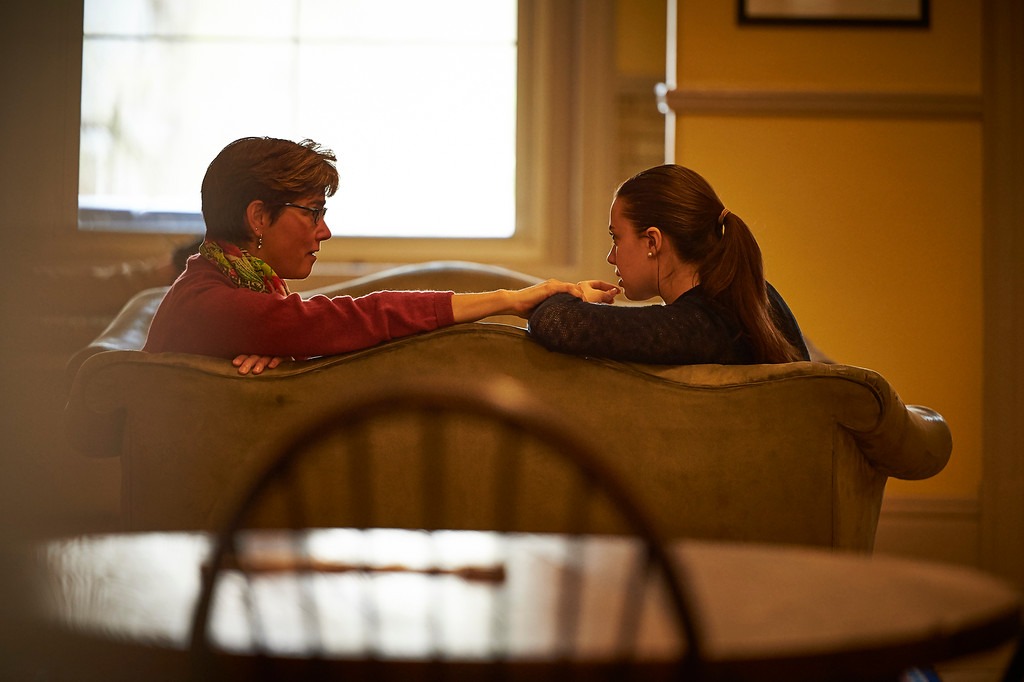Teenagers: Who Are They?
 There are many advantages to getting older, and I am actually a big fan of this, my fifth, decade because I can boldly say, “In over 30 years of working with teenagers…” and feel like I finally have the expertise to express opinions without any official statistics. So, here goes: In my 30 years of working with teenagers, I have found they often feel annoyed by their parents’ insistence that they “know them.” There are two themes that run through this resentment. The first is how counter this feels to the adolescent need for privacy and separation from their parents. The second is how rapidly teenagers change their minds, their interests, their direction, their values, their persona, and even their personality.
There are many advantages to getting older, and I am actually a big fan of this, my fifth, decade because I can boldly say, “In over 30 years of working with teenagers…” and feel like I finally have the expertise to express opinions without any official statistics. So, here goes: In my 30 years of working with teenagers, I have found they often feel annoyed by their parents’ insistence that they “know them.” There are two themes that run through this resentment. The first is how counter this feels to the adolescent need for privacy and separation from their parents. The second is how rapidly teenagers change their minds, their interests, their direction, their values, their persona, and even their personality.
Most teenagers bristle when an adult assumes to know and understand them unless that level of intimacy is self-initiated. For example, a particular teacher or coach may connect with your teen in a way that has them responding from a deep level. Your teen may say or think something like, “Coach Smith really understands what I’m about.” Fantastic. Not so fantastic are resentful grumbles like, “Mr. Jones acts like he knows me, but he doesn’t have a clue.” Or (and this may be a double bull’s-eye, one at your heart, and one at the heart of the matter), “Mom, you don’t get me at all!” As teenagers struggle to become adults (and this struggle is at the core of adolescence), they are aligning what they feel like inside with who they want to be. Furthermore, they are defining who they are in juxtaposition to what their parents think about them, say about (and to) them, and want for them. This is the important business of separation, the multi-act play of becoming, and teenagers feel stifled by adults who act like they know the ins and outs of their process.
Therein lies the gist of the second theme: truthfully, we don’t know the ins and out of their process. We may convince ourselves that part of being “close” to our teenager is “knowing” them, but humans, even our humans, are unknowable in that way. Our teenagers want us to understand that they are complex, multi-layered, private, and most importantly, changing daily. What appeals to them one minute may repel them the next, and this is not to be laughed at or trifled with. It is as out of our control, inevitable, and unpredictable as, well, the weather. If you can accept that, you have a much greater chance of authentic and respectful closeness (the kind that you afford other adults in your life) when your teenager finally makes it to the other side of the developmental bridge between childhood and adulthood.
Some thoughts and suggestions about how to allow your teenager the space to not be known:
- Do not assume you know their opinion. Ask them. Then accept it even if it is different from yours (after all, you asked).
- Never make fun of your teen for trying on personas. Don’t do it behind their back either. Your children are adept at sensing the adult version of an eye roll, the condescending amused smile. This is a surefire way to alienate, if not shame and humiliate, your budding adult.
- Let your teenager identify with adults in their lives that aren’t you. This may feel threatening in a primal sort of way, but you will always be their parent. Learning about other adults, ones worthy of mentorship, and those who are not, will help your teen decide what kind of adult they want to be.
- Be neither on the defense nor the offense if your teenager reminds you just how little you know them, or how much they will never be like you. These are throwaway phrases designed to create the distance they need to begin to make their own decisions and to cultivate their own opinions. It is an unpolished way of saying, “I am my own person-or at least I want to be.”
In the end, your child will become an adult, and like most adults, have a much slower rate of change. They will settle into their personality, usually embracing most of the values you taught them, and you will discover who they became in the course of their journey. Nonetheless, chances are they will still have the capacity to surprise you. Your child, your teen, and your adult, are still primarily their own person.


